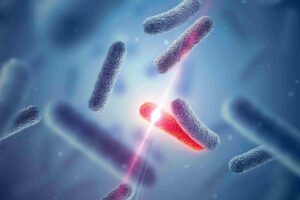Table of Contents
ToggleWhat is already known on this topic
Preterm birth affects 10% of pregnancies, and is the leading cause of death in children younger than 5 years of age. Preterm babies have a high risk of conditions such as metabolic syndrome and cardiovascular diseases in adulthood. They also show an altered gut microbiota, but whether the preterm microbiota affects the growth or health of premature babies remains unknown.
What this research adds
Researchers analyzed microbial differences in the first stool of preterm infants born before 32 weeks of gestation, those born between 32 and 37 weeks of gestation, and infants born at term. Transferring gut microbes from preterm infants into germ-free mice suggested that the initial microbiota is associated with reduced growth, gut inflammation, and altered metabolism.
Conclusions
The findings suggest that the first gut microbiota may be related to complications of prematurity.
Preterm birth affects 10% of pregnancies, and is the leading cause of death in children younger than 5 years of age. New research indicates that the first gut microbiota may be related to complications of prematurity.
The findings, published in Cell Reports Medicine, could also have practical implications, as they suggest that “measures aiming to minimize the long-term adverse consequences of very preterm birth should be commenced during pregnancy or directly after birth,” the authors say.
Preterm babies have a high risk of conditions such as metabolic syndrome and cardiovascular diseases in adulthood. They also show an altered gut microbiota, but whether the preterm microbiota affects the growth or health of premature babies remains unknown.
To characterize differences in the initial microbiota of newborns, a team of researchers led by Omry Koren at Bar Ilan University, in Israel, and Samuli Rautava at the University of Turku, in Finland, analyzed the first stool of preterm and full-term infants.
Preterm microbiota
The researchers collected samples of the first stool from infants born before 32 weeks of gestation, those born between 32 and 37 weeks of gestation, and infants born at term.
All preterm newborns had a lower diversity of microbial species compared to full-term babies. Firmicutes were the dominant bacteria in 95% of stool samples, and were more abundant in preterm infants born before 32 weeks of gestation compared to full-term babies and those born between 32 and 37 weeks of gestation.
Bacteroidetes were present in half of all stool samples. Prevotellaceae, Veillonellaceae and Lachnospiraceae were also common in newborns’ first stool.
Growth effects
To assess whether the altered microbiota of preterm babies could influence growth and development, the researchers transferred microbes from the first stool of preterm or full-term infants into the guts of germ-free mice.
Seven days after the microbiota transplant, mice that had received gut bacteria from preterm infants born before 32 weeks of gestation had high levels of Akkermansia and Faecalibacterium. After 35 days, the mice gained less weight and had higher inflammatory activation in their guts compared to rodents that received the microbiota of full-term babies. They also had lower blood levels of the metabolic hormones insulin and leptin compared to mice that received microbes from full-term newborns.
Mice that had received the microbiota of preterm infants born between 32 and 37 weeks of gestation showed intermediate growth as well as intermediate levels of gut inflammatory activation and metabolic hormones.
“Inflammatory activation is associated with preterm birth and many of its adverse consequences,” the researchers say. Metabolic alterations are also common in preterm infants, they note, and the lower blood levels of insulin and leptin observed in mice receiving gut microbes from preterm infants may explain the animals’ reduced growth. “This demonstrates a causal connection between initial gut colonization patterns and the adverse metabolic consequences of very preterm birth,” the researchers say.
Future studies investigating the events the influence the first gut microbiota could help to improve the long-term health of preterm babies, they say.











